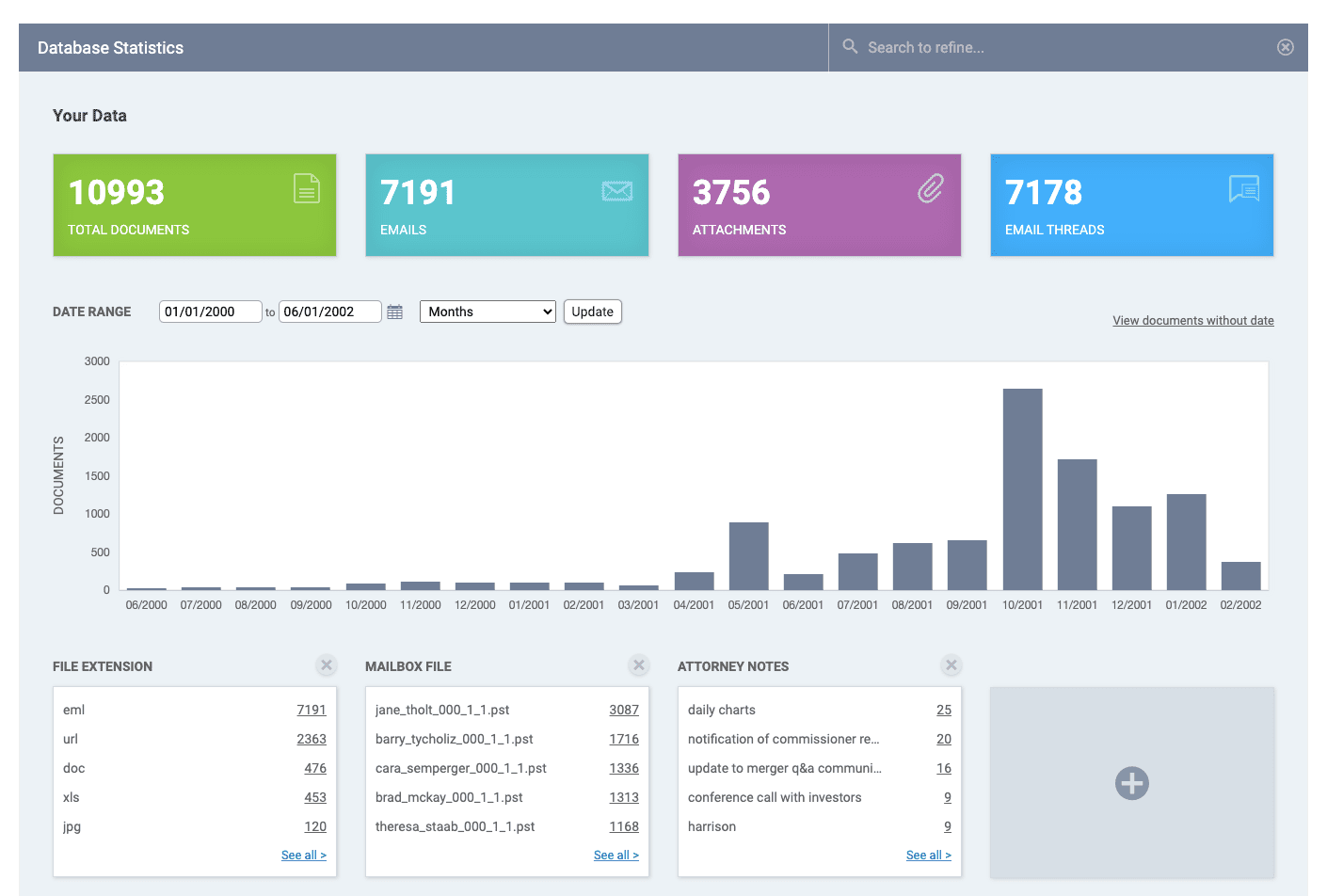
Additional Metrics now available in Nextpoint Analytics
You will now find all default and custom field metrics available to add to the ‘widgets’ section of your Analytics dashboard. Adding your own custom metrics can provide more insight into the unique facets of your data universe. You can further refine the Analytics page—and your metrics—by using the search box in the upper right of the dashboard.
To see the new metrics available, and add immediate insights to your review, simply navigate to the Analytics tab in any Nextpoint Review database, click the plus (+) sign on the available metrics square, and select your metric.
Targeted searching across a broad range of data
In addition to the expanded Analytic metrics, we are pleased to introduce more flexibility in searching with the addition of the search_fields syntax. The addition of such allows users to search across metadata and coding fields, excluding document text hits in the results.
What our users are saying:
“Oftentimes, in our Toxic Tort, Construction, Product Liability and Personal Injury matters, we will obtain old scanned paper documents for which OCR can be unreliable. These document types can include, but are not limited to, historical documents, blueprints and schematics, and medical records.
Due to the nature of our case data and coding needs, in some databases, 80-90% of our database fields are custom, and include manually entered values. Over the years, as users annotate and code the documents, the selection of fields for a particular type of coding entry can become inconsistent, and we end up on the hunt for something very specific in a vast sea of fields.
For example, a company name might have been entered in the Reviewer Notes field of Document A, in the Location field of Document B, and in the Document Description of Exhibit C. Multiply this by many more fields with search variations (e.g AND, OR, wildcards), and you can imagine how extensive our searches could get.
The addition of search_fields in Nextpoint has already saved us an immense amount of time in constructing searches, and we have noticed our search results are much more focused and relevant to what we were actually looking to find.” — Amy Koski, Foley & Mansfield
Interested in learning more about searching in Nextpoint?
Access our Search Guide



